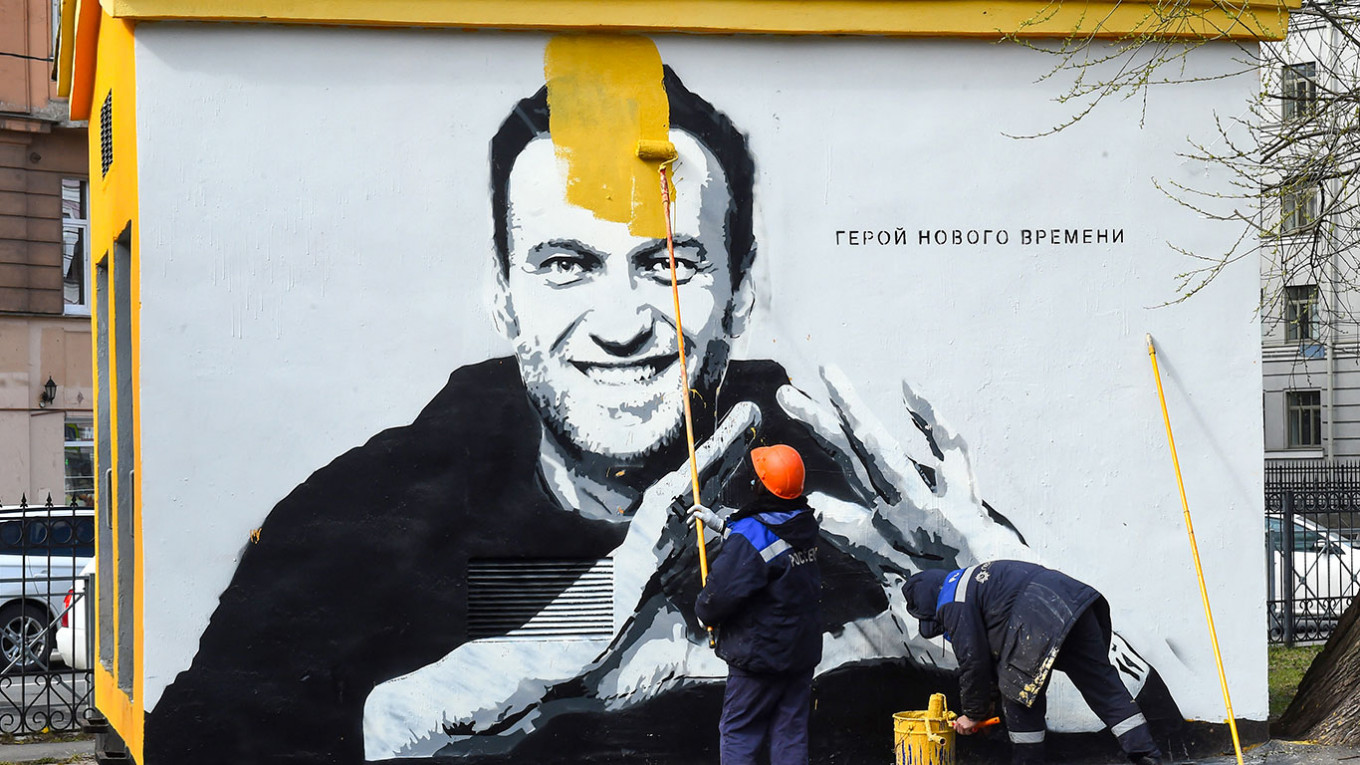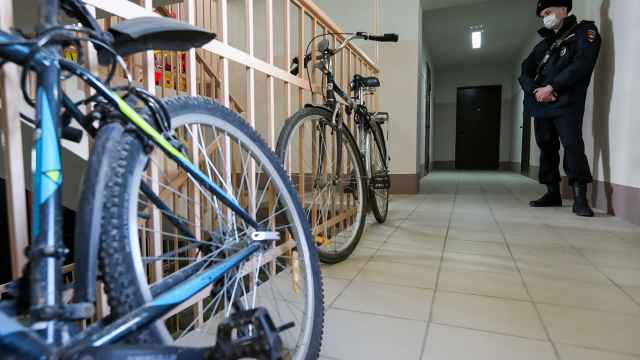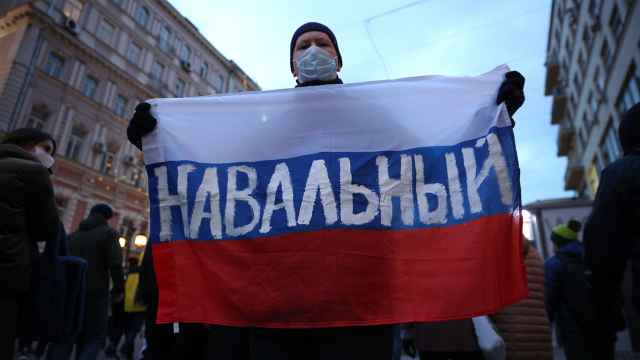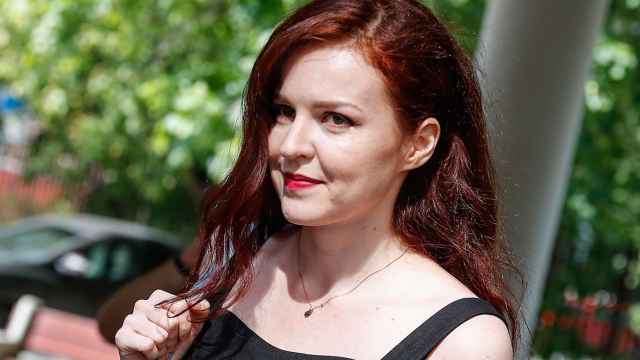One year ago, on a flight from Tomsk to Moscow, Russian opposition leader Alexei Navalny fell so ill that his plane had to make an emergency landing in Omsk, where he was admitted to the hospital.
When he had not regained consciousness after two days, President Vladimir Putin granted permission for him to be transferred to the Charité hospital in Berlin. German specialists determined that Russia’s intelligence agencies had poisoned Navalny.
The Kremlin miscalculated twice concerning Navalny — first when thinking it had finally eliminated him, and second when wagering that, if he survived, he wouldn’t hazard returning, but would join the growing ranks of Putin’s political refugees abroad.
The authorities showed no mercy when Navalny returned to Moscow, immediately arresting him and sending him to a hard labor camp. Widespread protests supporting him only prompted the state to initiate a crackdown.
Since then, it’s been hard to differentiate the so-called “doves” within the Kremlin from the “hawks” in the security services as both appear to be unified in their approach against the opposition.
Beyond the harassment by the police and courts, more repressive legislation was passed and actively applied to persecute not only the political opposition as a whole, but also civil activists and investigative journalists.
The new law labelling certain organizations and individuals as foreign agents has proven especially effective. And, by labelling Navalny’s organization as extremist, the authorities fully dismantled that infrastructure and laid the groundwork not only for neutralizing the opposition, but also for prosecuting those who help or even sympathize with it.
Civil society: the enemy of the state
Russia’s ruling regime has relentlessly become more authoritarian. Navalny was poisoned shortly after a national referendum resulted in a raft of ideologically conservative amendments to the Constitution that “zeroed out” Putin’s previous presidential terms and enabled him to effectively rule for life. Putin thereby legalized his blossoming into a full-fledged authoritarian ruler and put a fitting touch to his two decades in power.
What’s more, this referendum, that took place two years after the presidential elections, showed that the “Putin majority”, although diminished in size, still exists and is solid. Leaders used this fact to lay down the line, effectively threatening, “Those who are not with us are against us.” And for ordinary citizens, the most reasonable strategy in such a situation is to simply go along with the flow rather than stand out from the herd.
Navalny’s return only accelerated the Russian autocracy’s adoption of an even more repressive model of governance: the political system would have tightened the screws in any case, but perhaps not so quickly or radically.
The goal is clearly to crush the opposition and destroy independent media outlets.
The authorities have criminalized not only the activities of the opposition, but also all activities of civil society that the state does not control or condone. Thus, civil society as such has become an enemy of the state.
The state effectively offers three options to independent, politically active Russians: collaborate with the regime according to its rule, go to prison or emigrate. Vilnius, Tbilisi, Warsaw and Prague are now home to numerous, mostly young Russians who faced persecution in this country for exercising their constitutional freedoms of speech, press and assembly.
The Kremlin and repressive government structures as a whole have every reason to conclude that their approach is the right one. Their demonstrative cruelty and consistent use of repressive measures have routed the opposition, with the result that the protest mood in the country has naturally declined. Their actions have reduced parliamentary elections to a predictable formality that lends legitimacy to the “new” iteration of the old regime.
Navalny’s poisoning and subsequent arrest became symbols and a natural continuation of the “zeroing out” of Putin’s terms in office. To give Vladimir Putin the option to extend his rule until 2036, an unprecedented amount of fraud may have occurred, according the a number of independent observers.
Russia’s authoritarian political system is also a fitting and natural extension of its state capitalism and economic monopolism. The state is not just the main regulator and arbiter in the economy, but also its main player, one that changes the rules of the game to suit itself whenever needed. Economic policy largely comes down to budgetary policy — that is, the use of taxpayers’ own money to buy their loyalty.
In a sense, Russia has taken the path of Belarus, and the Russian expert community now speaks of the “new stability of authoritarian regimes,” putting Russia on a par with Belarus and Venezuela.
The Kremlin: immoral and obsolete
The authorities have dealt Navalny a defeat, at least at this stage: not only is he in prison, but many of his most active supporters have fled the country. These two factors contributed to a drop in his popularity: whereas 20% of Russians approved of his activities in September 2020, only 14% did so as of June 2021. And, whereas 5% of the population placed their confidence in him in January 2021, that number fell to just 3% by July of this year.
This does not mean that Navalny is no longer Putin’s main rival. “That person,” as the Kremlin dialect refers to Navalny, remains popular among Russians who are dissatisfied with the ruling regime. However, there is no obvious way for civil society to extricate itself from its current depressing state.
Still, the “new” old regime engenders a sense of futility with regard to modernizing the country while Putin is in power. This is the Achilles heel of the “stability” achieved at the expense of human rights and citizen’s real incomes. Although the presidential elections in less than three years will probably play out according to the standard scenario, they will be the first since the “zeroing out” referendum, the routing of the opposition and the defeat of civil society and might ultimately prove problematic for the Kremlin — and for a government that is both aging and obsolete.
A Message from The Moscow Times:
Dear readers,
We are facing unprecedented challenges. Russia's Prosecutor General's Office has designated The Moscow Times as an "undesirable" organization, criminalizing our work and putting our staff at risk of prosecution. This follows our earlier unjust labeling as a "foreign agent."
These actions are direct attempts to silence independent journalism in Russia. The authorities claim our work "discredits the decisions of the Russian leadership." We see things differently: we strive to provide accurate, unbiased reporting on Russia.
We, the journalists of The Moscow Times, refuse to be silenced. But to continue our work, we need your help.
Your support, no matter how small, makes a world of difference. If you can, please support us monthly starting from just $2. It's quick to set up, and every contribution makes a significant impact.
By supporting The Moscow Times, you're defending open, independent journalism in the face of repression. Thank you for standing with us.
Remind me later.








